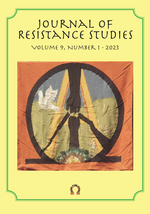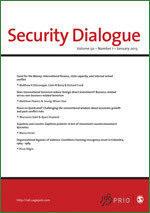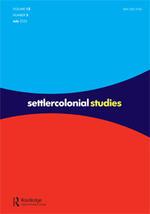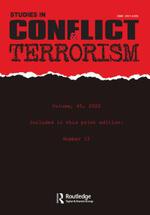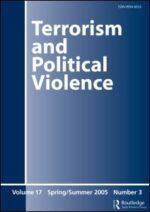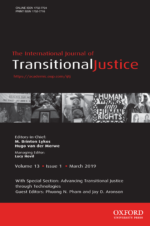Displaying 67 journals related to Peace. If you want to have a journal added, do submit new content!
Resistance Studies, Journal of
The Journal of Resistance Studies is an international, interdisciplinary and peer- reviewed scientific journal that explores unarmed resistance. The focus is on critical understandings of resistance strategies, discourses, tactics, effects, causes, contexts and experiences. Our aim is to advance an understanding of how resistance might undermine repression, injustices and domination of any kind, as well as how resistance might nurture autonomous subjectivity, as e.g. constructive work, alternative communities, oppositional ways of thinking.
Security Dialogue
Security Dialogue aims to combine cutting-edge advances in theory with new empirical findings across a range of fields relevant to the study of security. Security Dialogue provides an outlet for new approaches and methodologies from disciplines such as international studies, gender studies, political sociology, political economy, geography, cultural studies, political theory, anthropology, development studies, postcolonial studies, and peace and conflict studies. Security Dialogue encourages innovative analyses that challenge traditional readings of, inter alia, subjectivity, gender, identity, the individual, the social, the international, the economical, citizenship, health and biopolitics, risk, information technology, globalisation, migration and transnationalism, terrorism, crime, and media. Security Dialogue represents a unique forum across the arts, humanities and social sciences for scholarship that seeks to revisit, critique, and revise the concept of security against the backdrop of contemporary and historical developments.
Settler Colonial Studies
Settler Colonial Studies seeks to address the theoretical and practical aspects and implications of settler colonialism in the past and in the present. The journal was established to respond to a growing demand for reflection and critical scholarship on settler colonialism as a distinct social and historical formation. It is multidisciplinary and interdisciplinary by nature, encouraging submissions from multiple different academic disciplines, including, but not limited to, history, literature, Indigenous studies, area- and cultural studies, archaeology, anthropology, environmental humanities, genocide studies, and memory studies.
Social Identities
Recent years have witnessed considerable worldwide changes concerning social identities such as race, nation and ethnicity, as well as the emergence of new forms of racism and nationalism as discriminatory exclusions. Social Identities aims to furnish an interdisciplinary and international focal point for theorizing issues at the interface of social identities. The journal is especially concerned to address these issues in the context of the transforming political economies and cultures of postmodern and postcolonial conditions. Social Identities is intended as a forum for contesting ideas and debates concerning the formations of, and transformations in, socially significant identities, their attendant forms of material exclusion and power, as well as the political and cultural possibilities opened up by these identifications.
Studies in Conflict & Terrorism
Studies in Conflict and Terrorism aims to cast new light on the origins and implications of conflict in the 21st Century and to illuminate new approaches and solutions to countering the growth and escalation of contemporary sub-state violence. The journal is specifically oriented to both practitioner and scholarly audiences and is thus meant to bridge the divide between theory and practice. Studies in Conflict and Terrorism thus seeks to publish theoretical and empirical studies that contribute to a better understanding of the causes of terrorism and insurgency as well as the measures required to achieve their resolution. The journal addresses security challenges fuelled by religious and nationalist strife, moribund peace processes, disputes over natural resources, and transnational organized crime.
Terrorism and Political Violence
Terrorism and Political Violence advances scholarship on a broad range of issues associated with terrorism and political violence, including subjects such as: the political meaning of terrorist activity, violence by rebels and by states, the links between political violence and organized crime, protest, rebellion, revolution, the influence of social networks, and the impact on human rights. The journal draws upon many disciplines and theoretical perspectives as well as comparative approaches to provide some of the most groundbreaking work in a field that has hitherto lacked rigour. Terrorism and Political Violence features symposia and edited volumes to cover an important topic in depth. Subjects have included: terrorism and public policy; religion and violence; political parties and terrorism; technology and terrorism; and right-wing terrorism. The journal is essential reading for all academics, decision-makers, and security specialists concerned with understanding political violence.
Transitional Justice, International Journal of
The International Journal of Transitional Justice aims to provide just such a forum for developing and sharing knowledge and for building and consolidating research expertise in this vital field of study. Most importantly, IJTJ serves as both a vehicle for this information and as a point of dialogue between activists, practitioners and academics. …In the past two decades, countries emerging from divided histories have increasingly incorporated transitional justice mechanisms in order to uncover and deal with crimes of the past. Transitional justice has fast emerged as a recognised field of policy expertise, research and law, and today, is considered to be an academic discipline in its own right. Futhermore, concerns with transitional justice and its relevance to building durable peace has acquired an urgency and a priority within the world’s most important multilateral agencies. United Nations Secretary-General Kofi Annan, in addresses to both the Security Council and the General Assembly, has noted that it is only through ‘reintroducing the rule of law and confidence in its impartial application that we can hope to resuscitate societies shattered by conflict’. Citing transitional justice processes as a key vehicle in achieving this objective, Annan announced that the United Nations is working on ‘important new tools’ to strengthen the transitional justice processes of post-conflict states.




